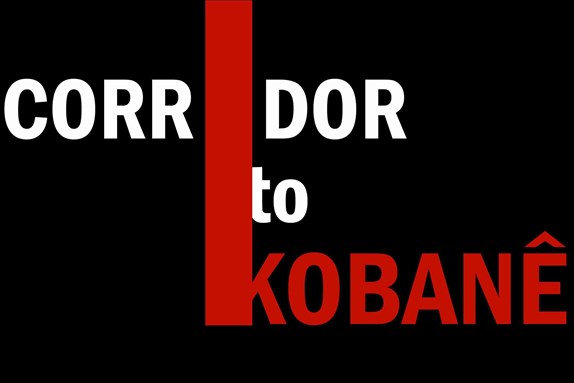[The following statement was issued by Gezi Platform NYC on 10 October 2014]
Call for Solidarity with Kobanê
On Monday, October 6th, ISIS forces entered the autonomous Kurdish canton of Kobanê in Western Kurdistan (North Syria) following a siege which began on September 15th. Defending Kobanê are the skilled but ill-equipped People’s Protection Units (YPG) and Women’s Protection Units (YPJ), who are up against The Islamic State of Iraq and Syria (ISIS), a religious extremist organization bent on slaughtering, enslaving, and raping hundreds of thousands of civilians using advanced American and Russian weapons.
The International Coalition led by the US, which bears great responsibility for the present bloodbath in the region, has been hesitant and late in taking any action that would have hindered ISIS from entering Kobanê. For the time being the US has contented itself with remaining as an onlooker to the ongoing barbarism, at times bombing some secondary targets only for appearance. Although this attitude seems to be changing as a result of rising international pressure, this will not prevent the International Coalition from being responsible for a potential massacre in Kobanê, if the Kurdish forces are ultimately defeated.
Turkey, a strategic partner of the the US in the region, bears a particularly big responsibility for the current situation. The city of Kobanê is presently besieged by ISIS from three sides. The fourth side in the north is the border to Turkey. Kurds throughout the region have been demanding for weeks from the Turkish government to open up a corridor from other Kurdish cantons from Northern Syria to Kobanê, so that they can concentrate their military forces there to fend off ISIS. Turkey, however, is purposefully obstructing any such movement into Kobanê. This is particularly hypocritical, since it has been well-documented that the Turkish government has been financially and logistically assisting Islamist fundamentalists besides ISIS, including allowing cross-border movements in order to overthrow the Assad Regime.
The march of ISIS into Kobanê has ignited massive demonstrations throughout Turkey, particularly in North Kurdistan (Southeast Turkey). The response of the Turkish government has been one of violent repression, leading to the death of 35 protesters on the first few days of the protests. All of these events have seriously threatened the ongoing but fragile peace process between the Turkish government and the Kurdish National Liberation Movement. The end of this peace process would most likely be the start of a bloody civil war in Turkey, which could spark further turmoil across the entire Middle East.
In short, we are convinced that the International Coalition and Turkey are waiting for ISIS to first crush Kobanê, and then the other autonomous Kurdish cantons in the region--all of which stand as the only way of establishing peace through pluralistic and democratic governing in the region. This is nothing but playing with fire.
We are calling for solidarity with the resistance in Kobanê and helping the Kurds echo their demands. ISIS must be swiftly and decisively defeated. To that end, the Turkish government must stop its military manipulation of the situation for its own interests. We demand that the Turkish government allow Kurdish forces located beyond Kobanê unrestricted access to the city by opening its border gate to Kurds rather than ISIS fighters. Moreover, any attempt of Turkey with or without the support of the International Coalition to create a buffer zone in Kobanê must be stopped, for such posturing lays the ground for an invasion of other Kurdish territories. If Kobanê falls, the result will be an uncontrollable spiral of more wars and massacres across the whole of the region--and history will clearly note who is responsible for it!
Long live the resistance of Kobanê! Bijî berxwedana Kobanê!
Gezi Platform NYC


















